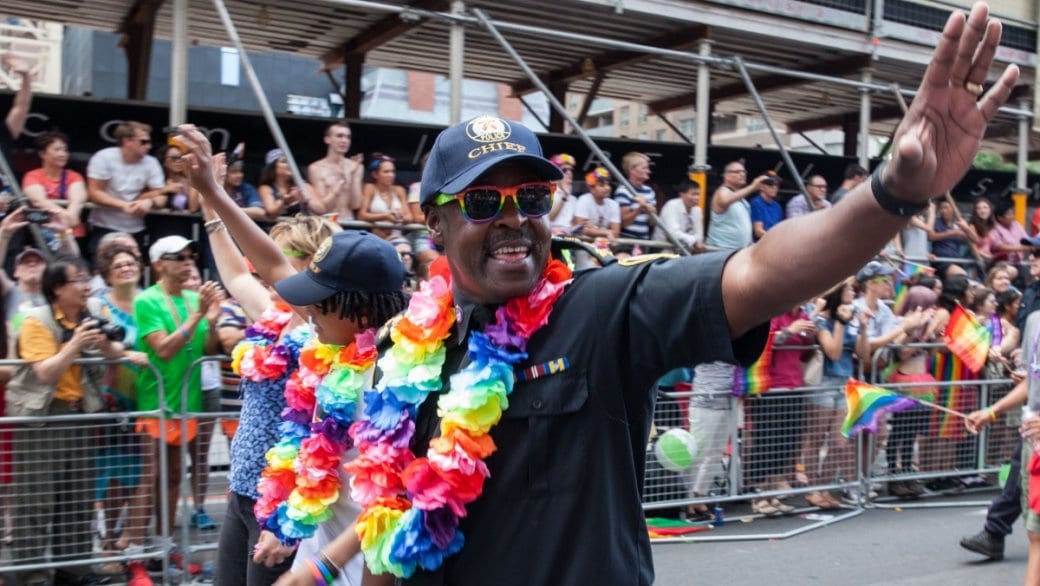In a joint statement made with five other LGBT organizations, Pride Toronto is asking that the Toronto Police Service withdraw its application to march in the parade.
“We believe that our resources are better invested in shared efforts that focus on deeper dialogue, collaborative action, and sustained institutional change,” read the statement, which was published April 2. “Only a significant commitment and meaningful action can start the critical work of making our communities safer.”
Five other LGBT organizations — The 519 community centre, the Alliance for South Asian AIDS Prevention, the Black Coalition for AIDS Preventions, Toronto People with AIDS Foundation and the Sherbourne Health Centre — signed onto the statement.
The request comes at a time of an increasingly strained relationship between Toronto police and the city’s LGBT communities. The revelation that an alleged serial killer had been preying on gay men for years has infuriated many LGBT Torontonians. And Toronto police Chief Mark Saunders’ statements to the Globe and Mail in which he appeared to blame LGBT victims of sexual assault for not coming forward with information has led to calls for his resignation.
But even before the arrest of Bruce McArthur, Toronto police were being sharply criticized for how they handled the missing persons investigations of Alloura Wells and Tess Richey, both of whom were found dead.
“This has severely shaken our community’s already often tenuous trust in the city’s law enforcement,” read the statement. “We feel more vulnerable than ever.”
The issue of police involvement in Toronto’s Pride festival has been a central debate ever since Black Lives Matter Toronto stopped the parade in July 2016 to make a number of demands, including limiting police participation.
In January 2017, Pride Toronto’s membership voted to ban police organizations from marching if they had uniforms, firearms or police vehicles. While police officers were still allowed to march in the 2017 parade, Chief Saunders instructed police to not march until talks could be held with Pride Toronto.
According to a recent Toronto Star report, negotiations between Pride Toronto and Toronto police had been ongoing days before McArthur was arrested in January 2018.
But in the joint statement, Pride Toronto said that a parade won’t be able to help heal the deep mistrust of the police.
“Marching won’t contribute towards solving these issues; they are beyond the reach of symbolic gestures,” it read.

 Why you can trust Xtra
Why you can trust Xtra


